BY AIDAN SEIDEN | Since the age of 18, Anita Durst has been a fervent proponent of New York City’s avant-garde artistic community.
In 1995, after the death of her mentor, Reza Abdoh, a director and playwright who staged productions in unusual venues, like warehouses and vacant buildings, she founded the nonprofit ChaShaMa. The organization is dedicated to providing artists with studio and exhibition space in Manhattan, free and without content restraints.
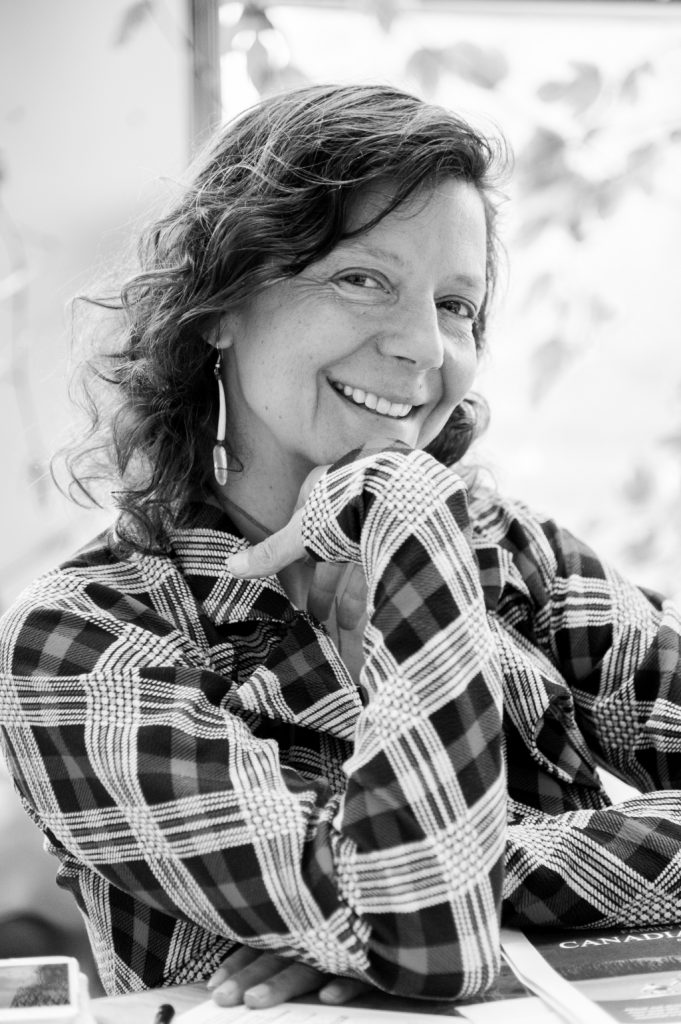
As a direct response to the COVID-19 pandemic, Durst and ChaShaMa have joined forces with the city’s Department of Small Business Services to develop Storefront Startup, an initiative designed to restore economic stability, entrepreneurship, creativity and hope to New York City.
Durst has 26 years of experience connecting struggling artists with empty studio spaces. But with Storefront Startup, she is now branching out from art and partnering with small businesses of all kinds.
“It is much more about helping the economy of New York and bringing back the flavor of the small mom-and-pop shops,” Durst explained. “Collaborating with visual artists is considerably different from dealing with small businesses.”
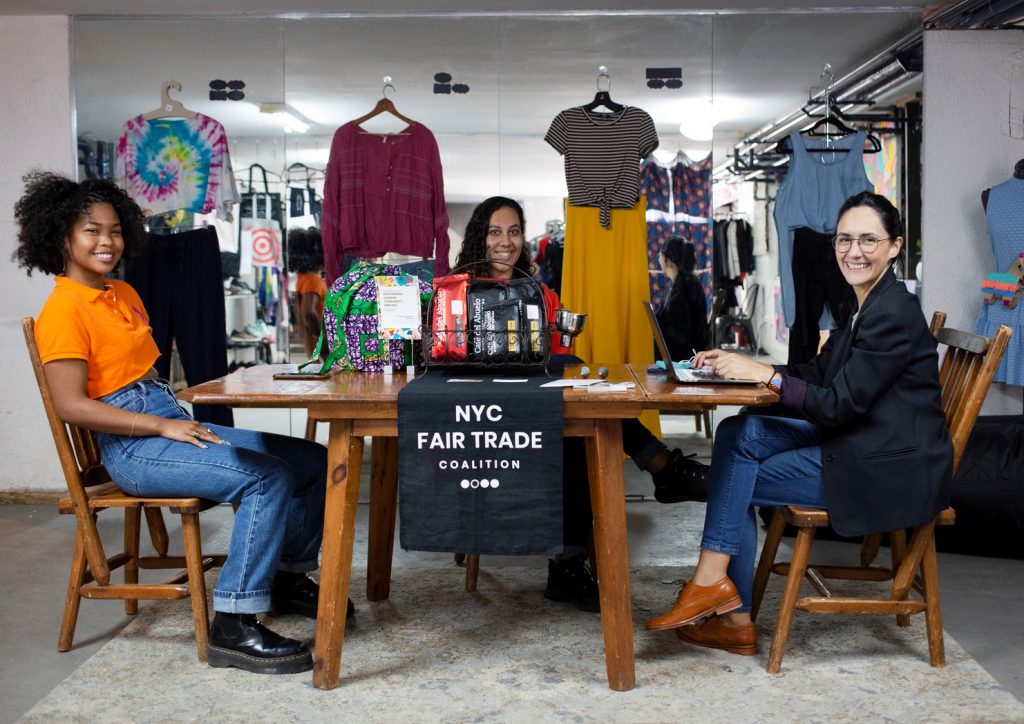
Durst equates the difference for her between working on ChaShaMa and Storefront Startup to learning a new language. The new retail initiative involves embracing the management side and learning the needs of a business in order to construct a thriving operation.
Since one of Storefront Startup’s core objectives is to help rent out empty commercial spaces, the program has garnered an overwhelmingly enthusiastic response from property owners. With locations already secured in Harlem, the Bronx, Manhattan and Brooklyn, Storefront Startup is now waiting for more property owners to reach out due to the tremendous amount of vacant storefronts and idle development sites.
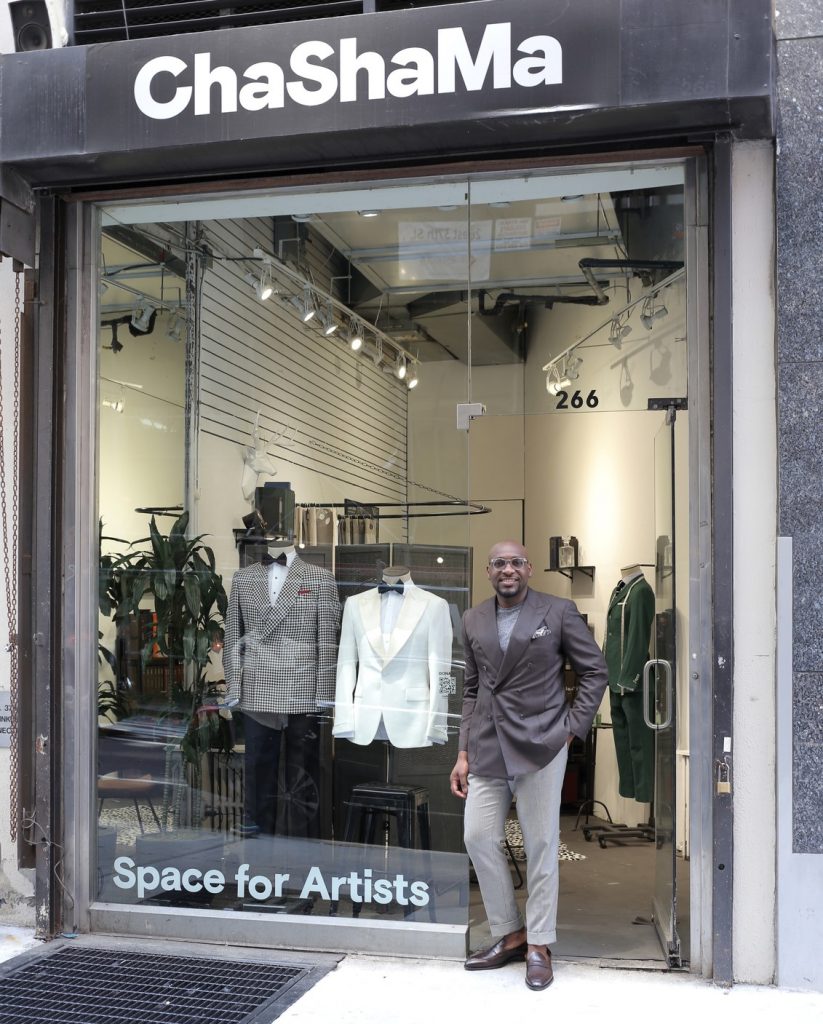
“I think it’s a great idea,” said Jarvis Holcomb, 47, the landlord of an empty storefront on Bleecker St., “especially considering the horrible effects the pandemic had on all of us. Everybody gets paid, and these businesses get the opportunity to showcase their products in ways they would never have been able to before, it’s a win-win situation.”
The other core objective of Storefront Startup is to promote shopping locally since this helps stimulate the economy and supports local artists and young entrepreneurs.
“It has impacted my business in the most remarkable and positive way,” Lesley Ware, owner of The Creative Cookie, said of Storefront Startup. “My visibility has increased and I am able to provide opportunities not only for myself but the other artists and designers involved, too.”
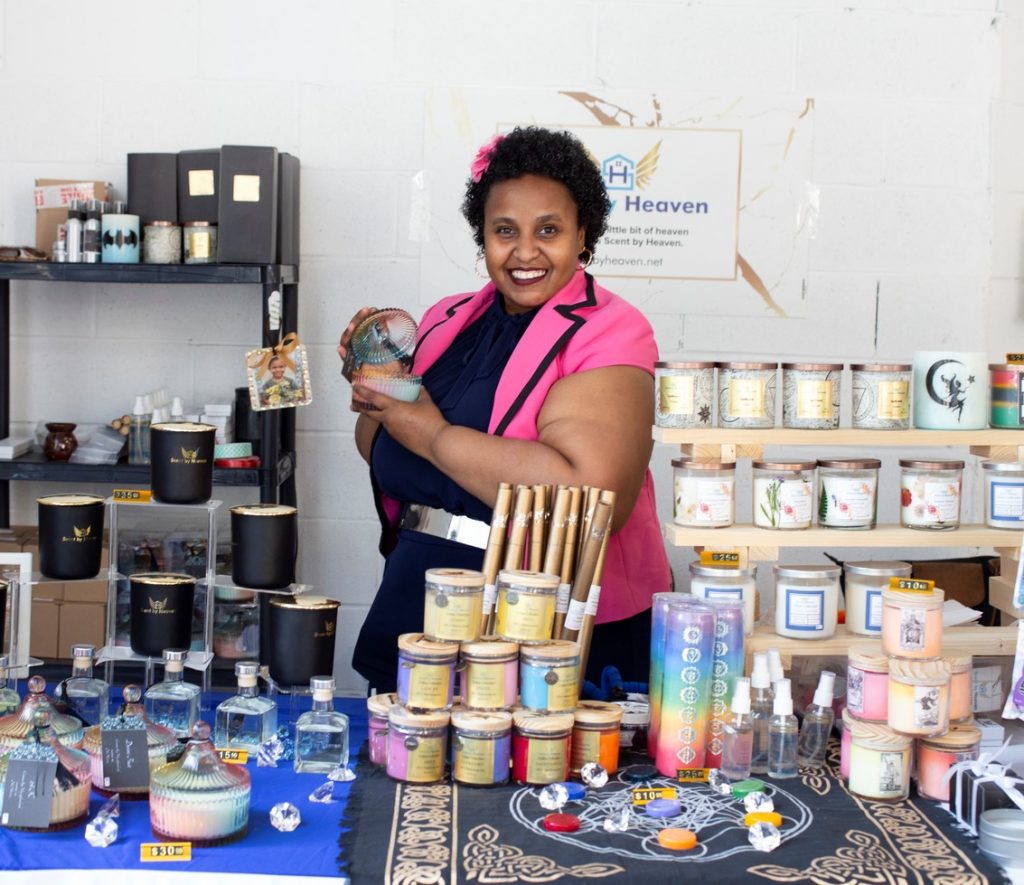
The Creative Cookie, a black-and-woman-owned business that was recently in a space at 21 Greenwich Ave., is one of Durst’s favorite examples of what her initiative can accomplish. The business was created in 2008 by Ware, who Durst praises as “amazing” and “vibrant.”
What began as a fashion blog and sewing atelier, gradually expanded into a fashion pop-up shop, with products constantly selling out, with the help of Storefront Startup. The multi-brand boutique focuses on stylish products, such as handmade totes and eccentric apparel, that are also “socially, ethically and environmentally friendly.”
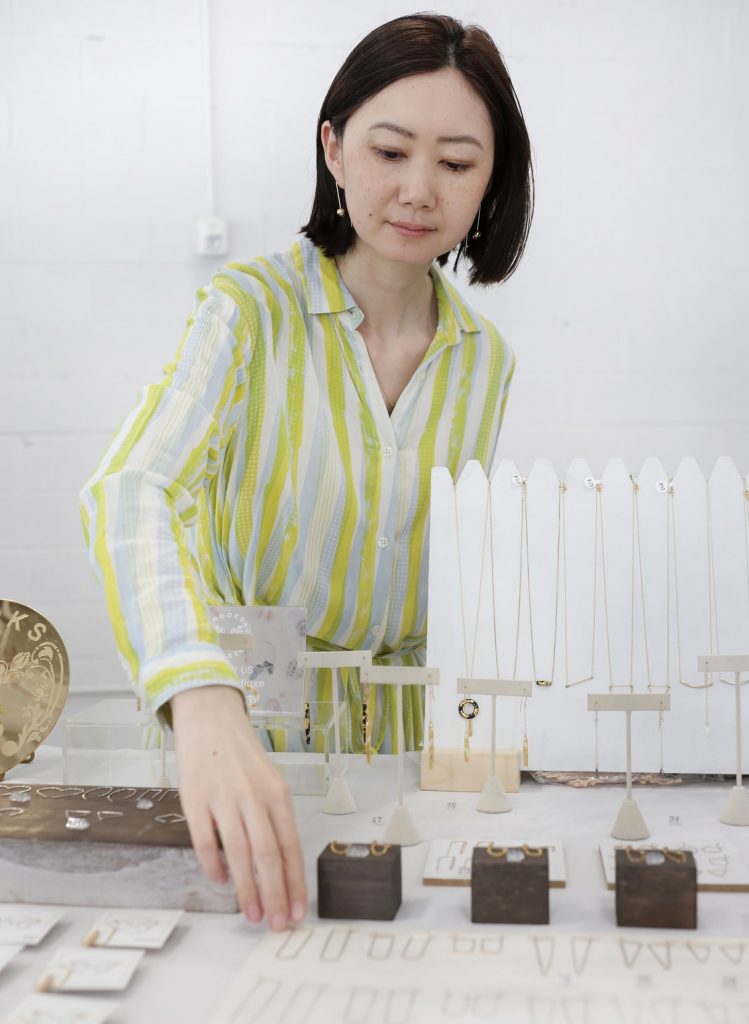
In addition, Ware is now working alongside artists and other small businesses by bringing them into her shop and providing them with an opportunity. And due to Ware’s involvement and success with the Storefront Startup program, she now has the option to take on her own lease in the Village.
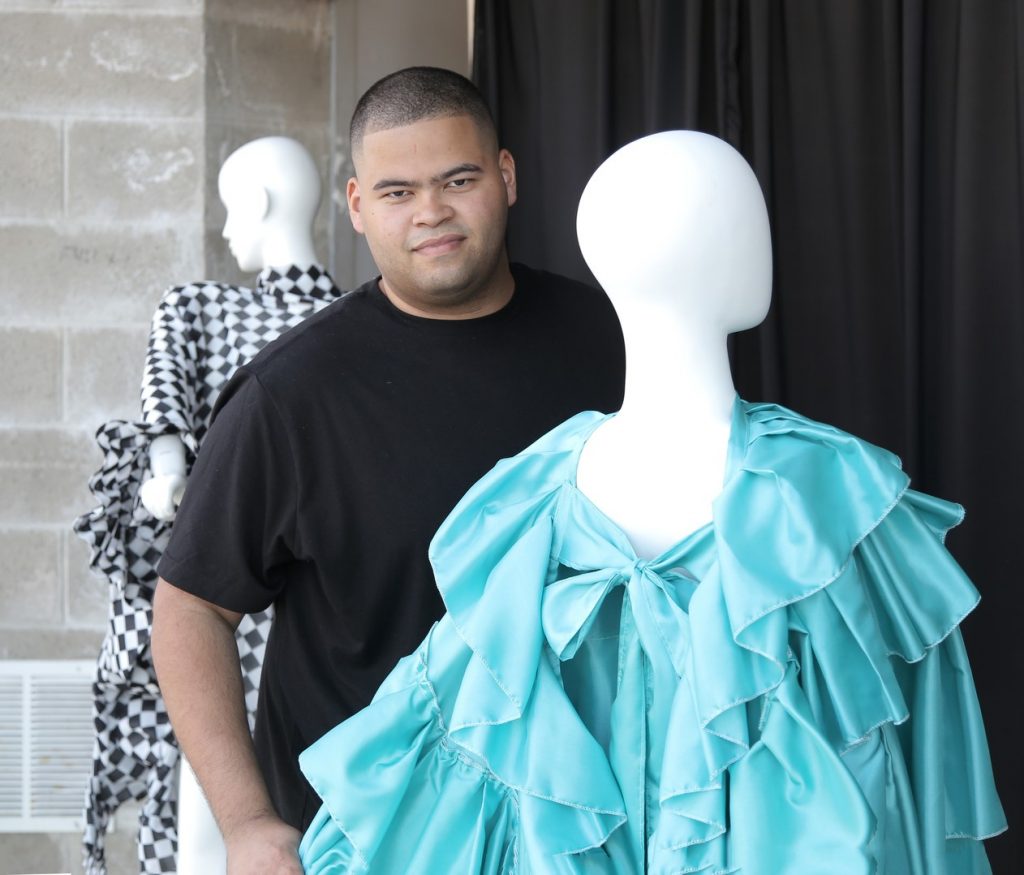
“I would love to continue to work with Miss Durst until we further define our brand image and grow our base more,” Ware said. “ChaShaMa [Storefront Startup] provides the necessary infrastructure — marketing, P.R. help, promoting events, space, etc. — to ensure success and opportunities to network with other program participants. It feels really seamless.”
Although her Art to Ware boutique is no longer in the Greenwich St. space, thanks to Durst, Ware will be reopening the pop-up boutique at a new Chelsea location, at 320 W. 23rd St., the end of August.
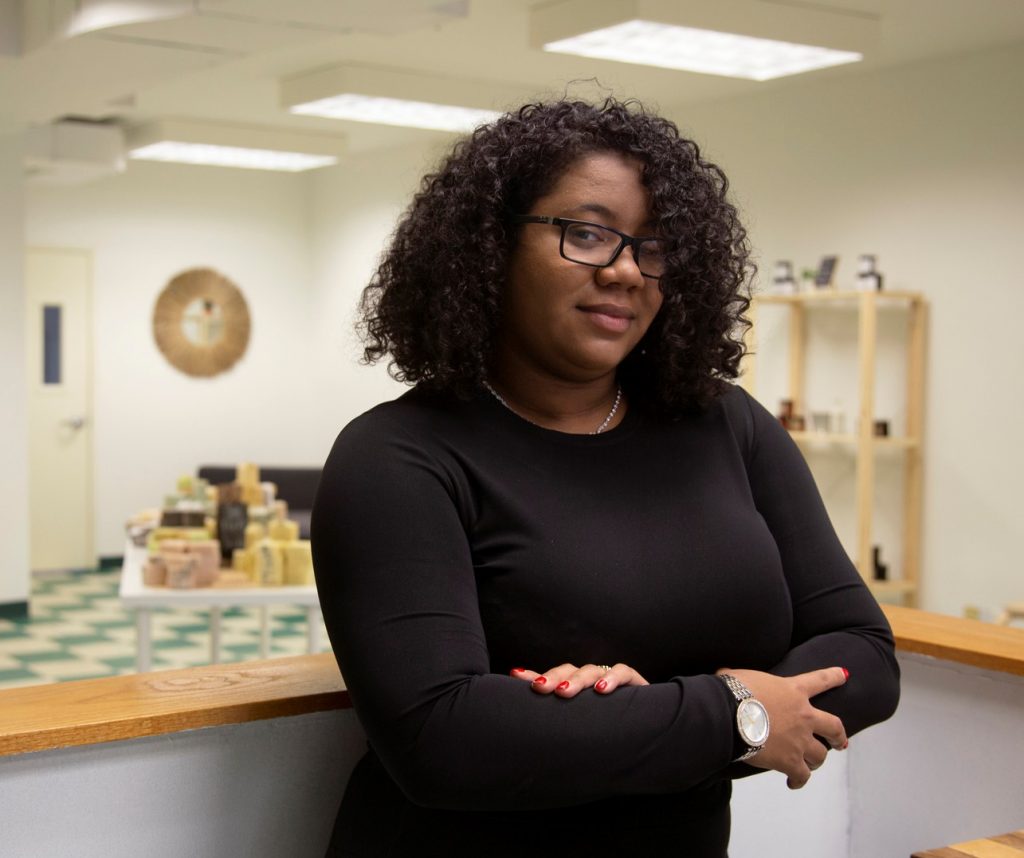
After seeing the success that Storefront Startup has had in the past year, placing 30 small women- and minority-owned businesses into stores, the Department of Small Business Services provided the organization with an $80,000 grant to expand the initiative. That follows another $80,000 that S.B.S. gave to the effort the year before.
Currently, Storefront Startup is in talks with representatives for The Oculus in Lower Manhattan, who are “very excited about the idea of minority- and women-owned businesses,” Durst said. The initiative is also working on placing a business in the closed Strawberry store at the Port Authority bus terminal in Midtown.
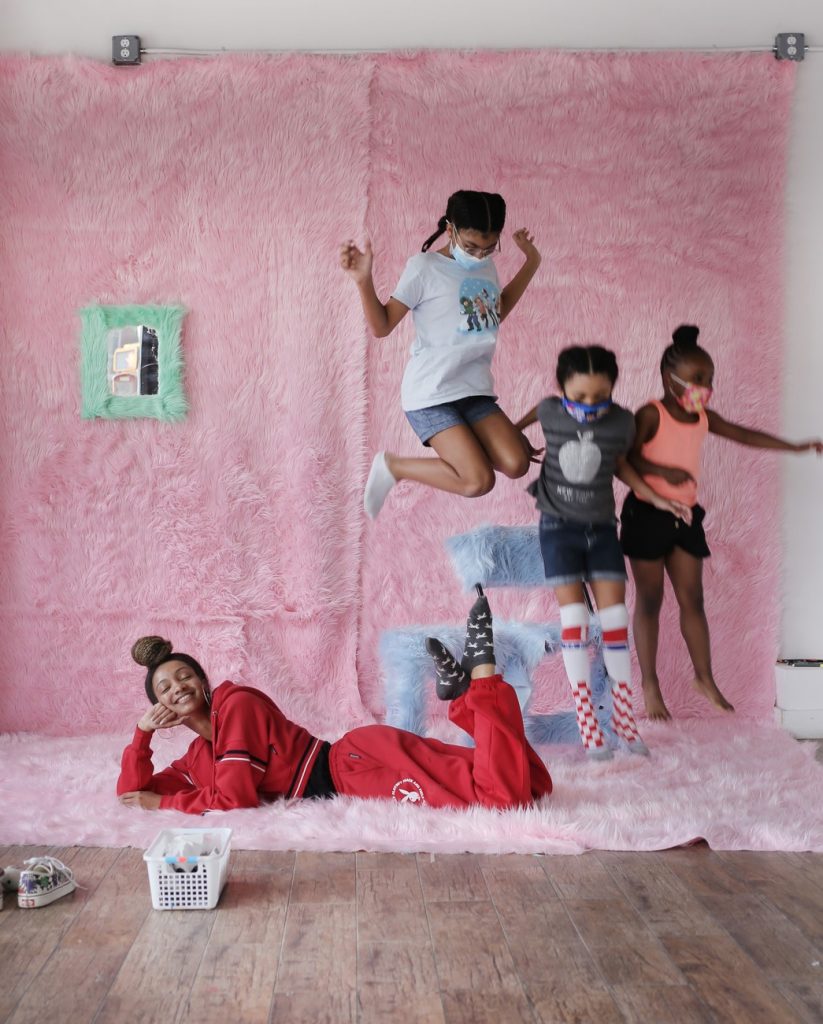
Durst, whom Ware jokingly described as an “artsy fairy” because of her energy and inspirational attitude, is now searching for property owners who are willing to provide long-term spaces for up to a year or longer. Durst believes that “three months is too small of a period of time.” According to her, having a full year can truly make a difference in how a business is run, and can allow the entrepreneurs to better understand how to get a leg up in the industry.
As Ware put it, “Pop-ups are the future of fashion retail, so I feel like I get to be on the cutting edge with Miss Durst.”

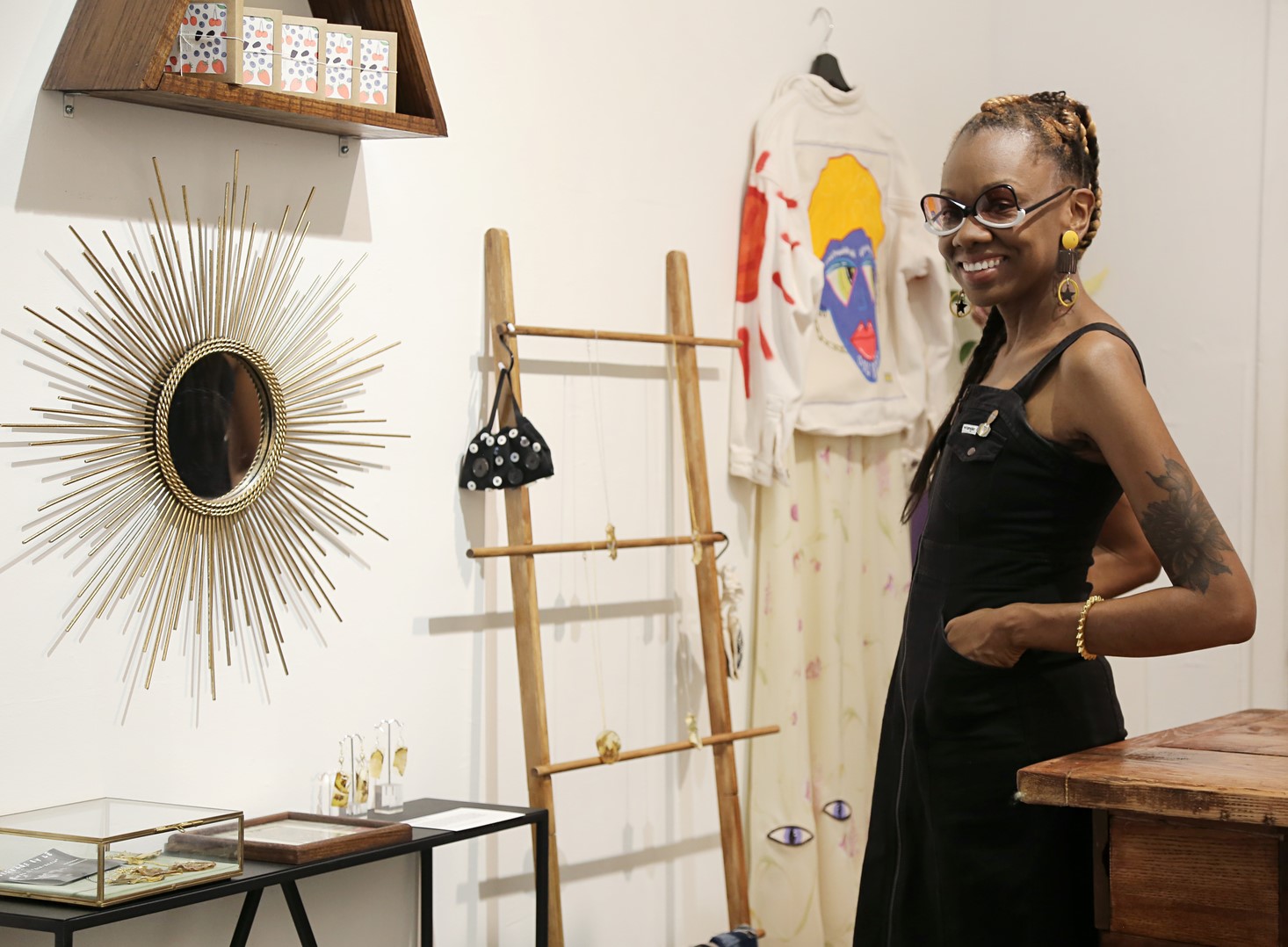
Be First to Comment